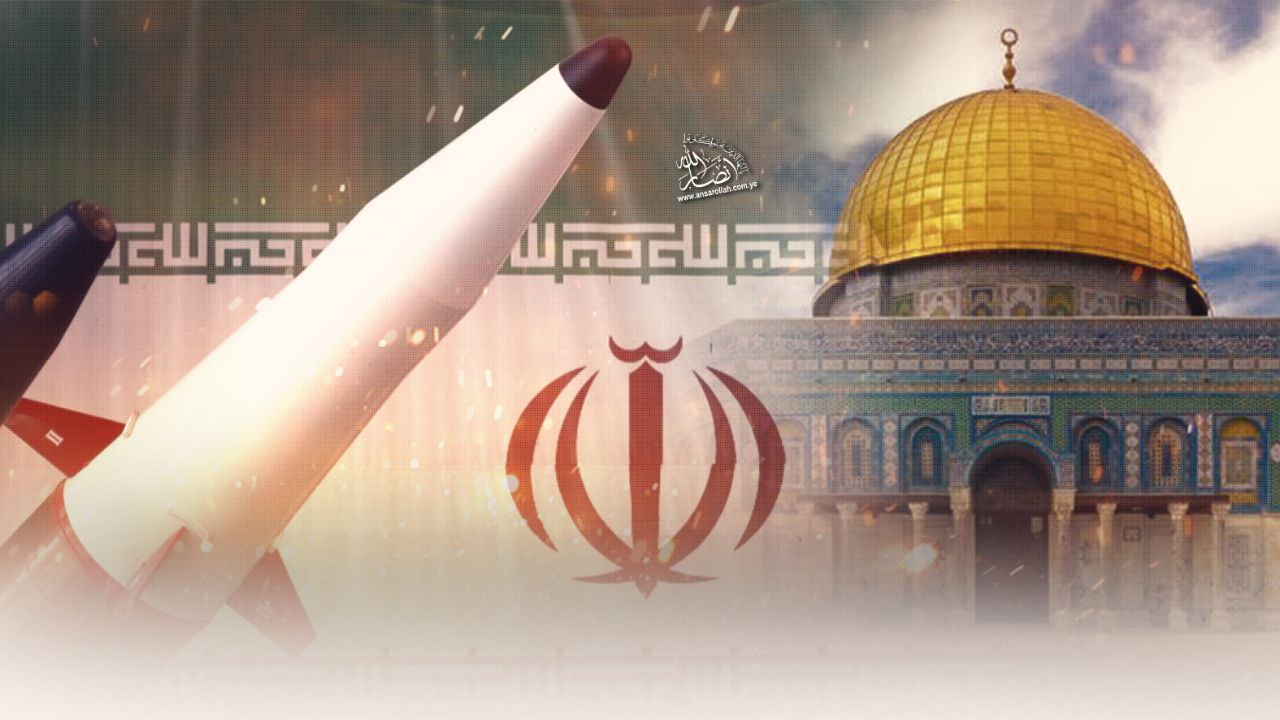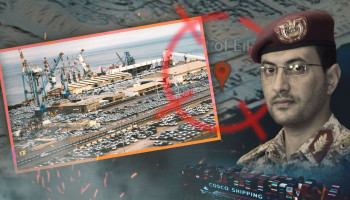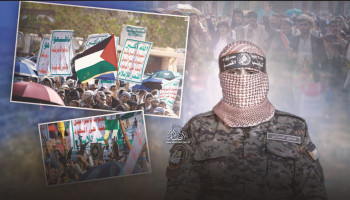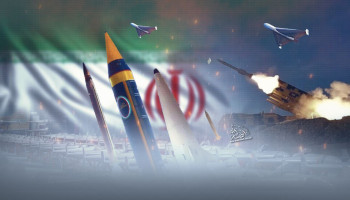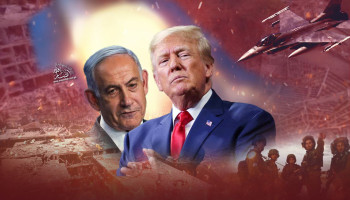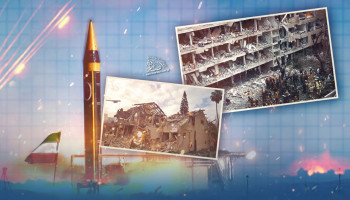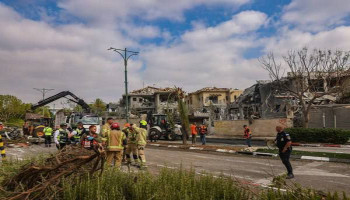Published: 22 Dhul Hijjah 1446
Since the victory of the Islamic Revolution in 1979, Iran has reshaped the priorities of regional conflict, making the Palestinian cause a central pillar of its foreign policy, religious and political discourse, and media messaging. This stood in stark contrast to the path taken by some Arab regimes, which leaned toward peace settlements and retreat, especially following the signing of the Camp David Accords, which removed Egypt from confrontation with "Israel." In this context, Iran emerged as a new actor bearing the banner of resistance, embracing Palestinian resistance movements and positioning itself as a strategic alternative during a time of Arab withdrawal.
The revolutionary government in Iran severed relations with "Tel Aviv," which had enjoyed a strong alliance under the Shah, and transformed what used to be the Israeli embassy into the headquarters of the Palestinian delegation. Imam Khomeini welcomed Palestinian leaders in the early days of the revolution, most notably the late Yasser Arafat. In those first days, Khomeini declared International Quds Day as an annual occasion to highlight the oppression of the Palestinian people and to support the resistance movements. In 1988, the Quds Force of the Islamic Revolutionary Guard Corps (IRGC) was established, becoming the body responsible for supporting and coordinating with resistance movements.
Iran also turned its attention to Lebanon, helping establish Hezbollah as a resistance movement to confront the Zionist occupation. The party achieved strategic victories between 2000 and 2006 and has since become the most influential political and military actor in Lebanon and a cornerstone of the broader Resistance Axis.
Iran leveraged its strong relationships with both Syria and Hezbollah to support Palestinian resistance movements, aiding in the development of their military and logistical capabilities. It provided political and financial backing and helped break the regional blockade imposed on them.
Palestinian resistance, in turn, was deeply influenced by the Iranian Islamic Revolution, which revived hope after repeated Arab and Islamic failures. Dr. Fathi Shaqaqi, the martyred founder of the Islamic Jihad Movement in Palestine, was one of the most prominent Palestinian figures influenced by the Iranian Revolution and its leader, Khomeini.
Shaqaqi viewed the Islamic Revolution as an inspiring model of uprising and resistance. In his book Khomeini: The Islamic Solution and the Alternative, he clearly expressed his conviction that the Iranian model represented the most effective path to resist occupation and liberate land. From this belief, the Islamic Jihad Movement was born in the early 1980s as a new current that brought together Islamic faith and armed struggle.
Iranian support was not limited to Islamic Jihad but extended to Hamas, particularly its military wing, the al-Qassam Brigades. General Qasem Soleimani, commander of the Quds Force until his assassination in 2020, was the chief architect of this relationship.
Soleimani—whom Palestinian leaders described as the "Martyr of al-Quds "—was directly responsible for coordinating with resistance leaders. He facilitated the transfer of military technology, provided resources, trained cadres, and developed both the rocket and tunnel capabilities for defensive and offensive operations inside the Gaza Strip. He also played a key role in enhancing coordination among the resistance factions and forming joint operations rooms to manage confrontations with Israeli aggression.
Thus, through its revolution and ongoing support, Iran has represented a strategic turning point in the trajectory of the Palestinian cause. It has revived the path of resistance and transitioned from a marginal actor to a central pillar in defending the rights of the Palestinian people across all circumstances and junctures. Throughout this period, Iran has rejected all forms of Western pressure and economic sanctions, never compromising or yielding.
Undoubtedly, the recent war launched by the Zionist entity against Iran is deeply connected to the Islamic Republic’s firm and principled stance on the Palestinian cause. Likewise, there is no doubt that the future of the Palestinian cause now hinges on the outcome of this confrontation, particularly as Arab regimes continue to turn their backs on the ongoing genocide in Gaza that has persisted for twenty months.

